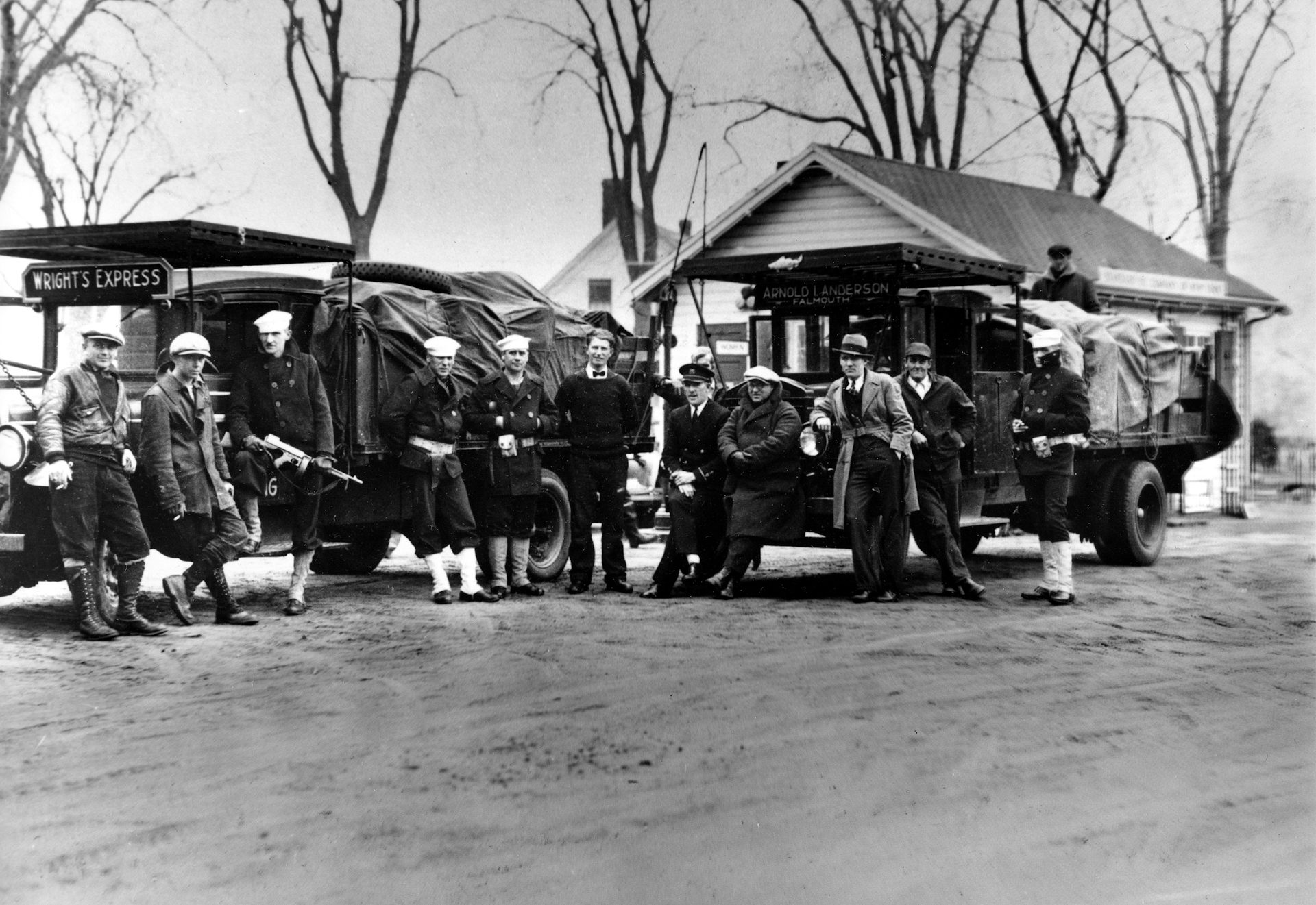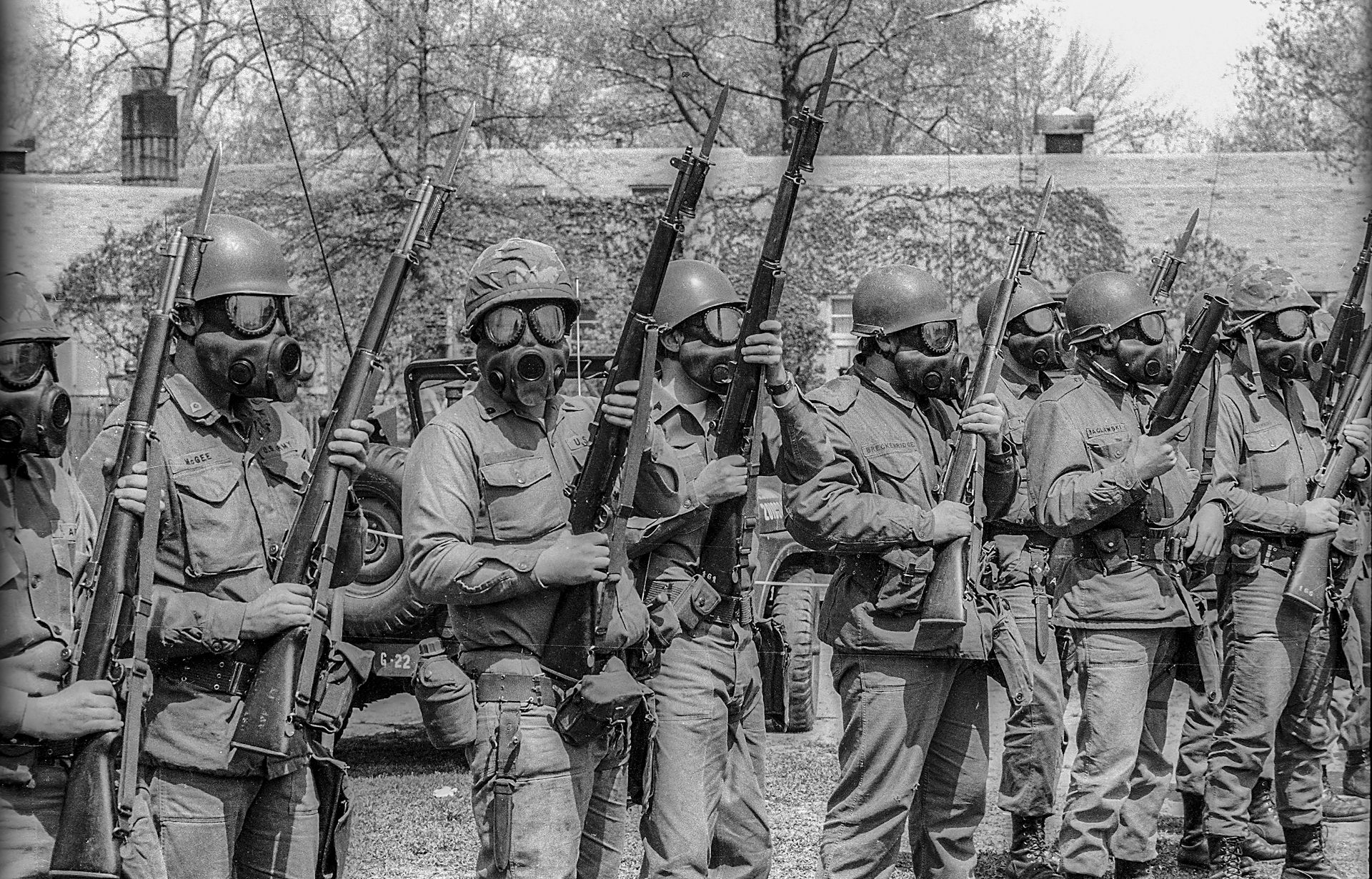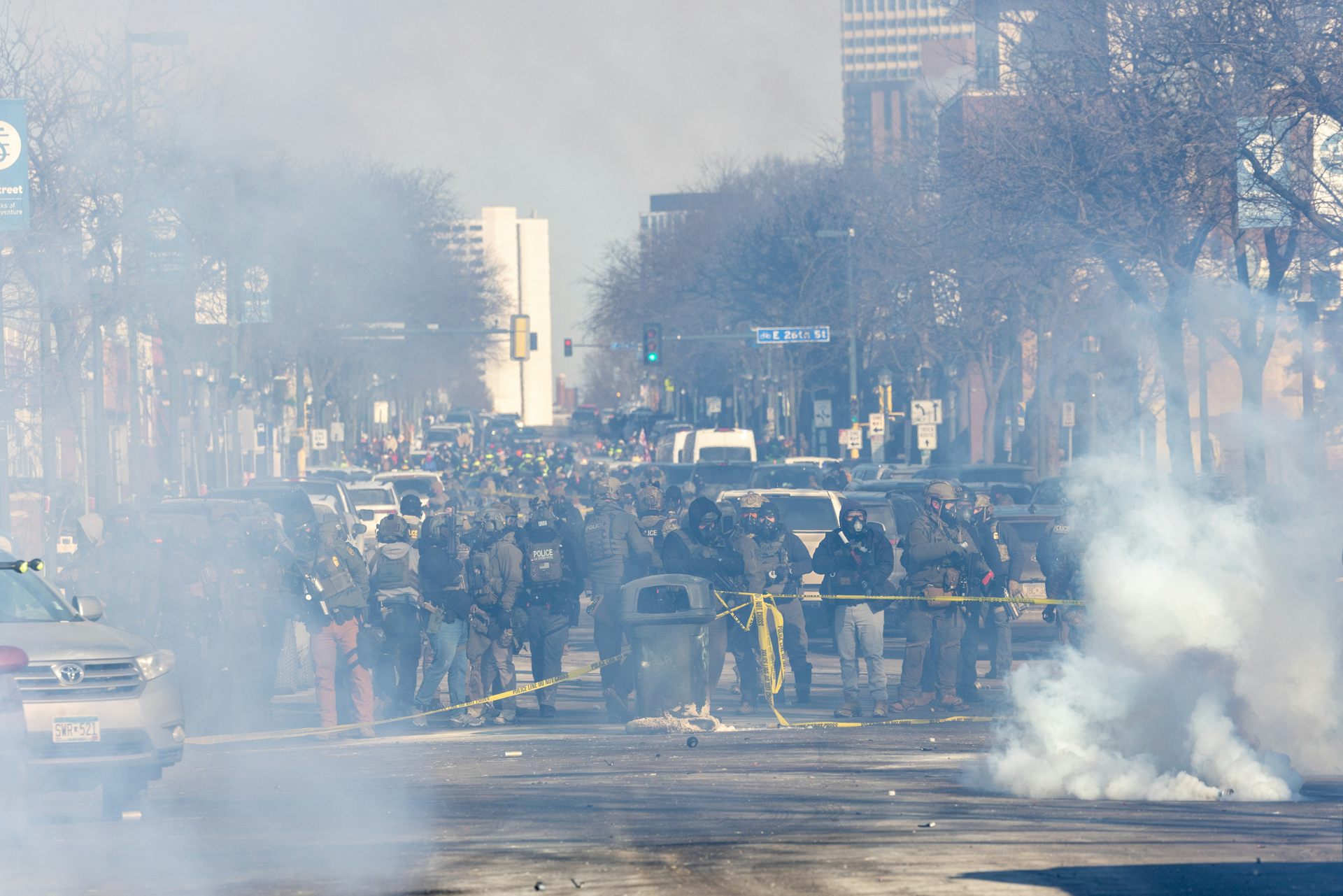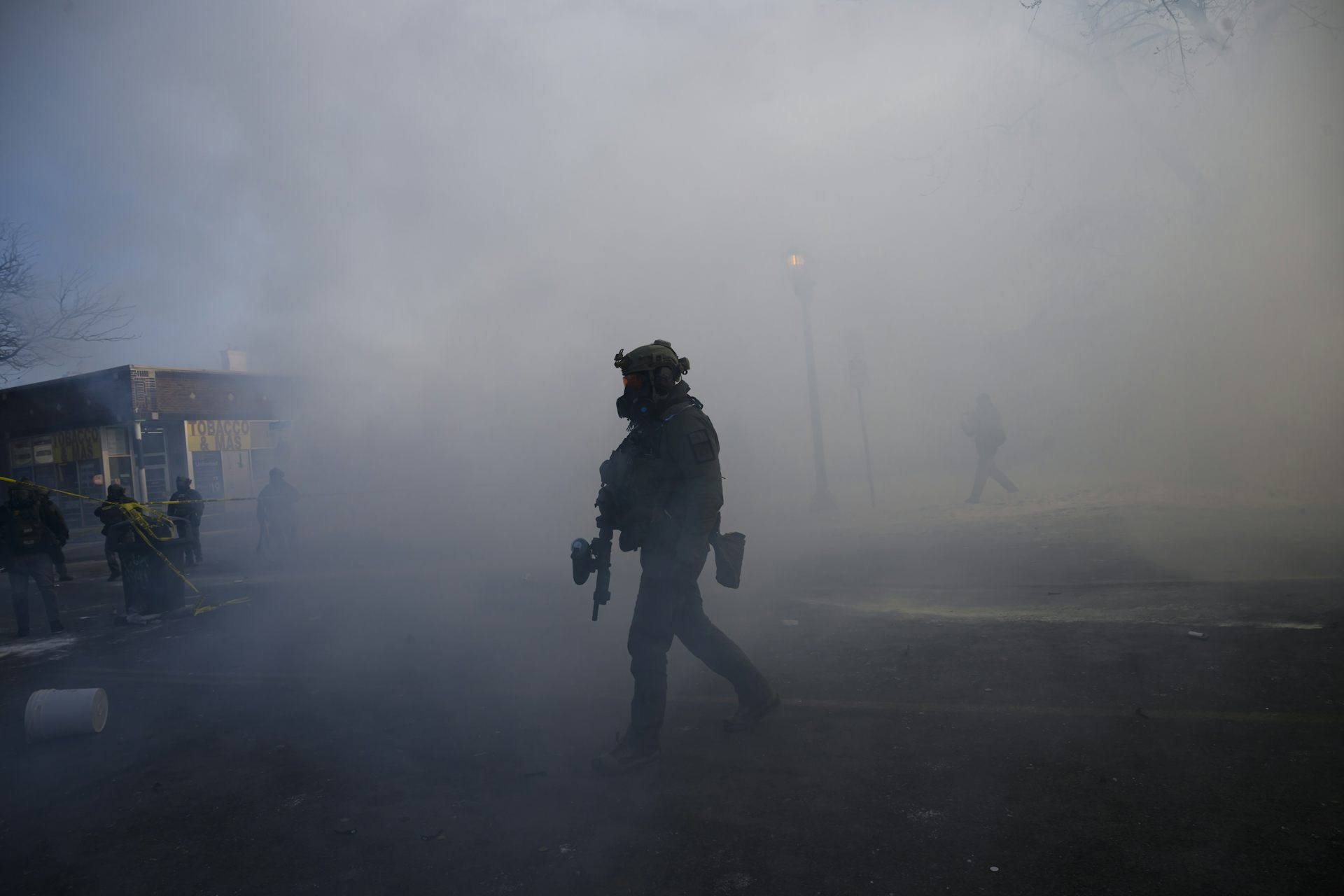What is tear gas?
The chemical weapon, tear gas, was used in Washington DC, Los Angeles, Orlando and several other cities to control crowds protesting the death of George Floyd. But what is it? Does it cause harm?
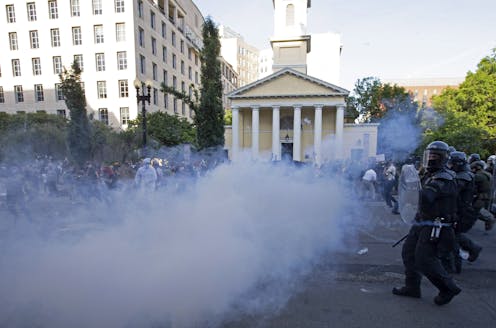
In the past week, there have been reports of tear gas being used to control crowds protesting the death of George Floyd, so questions have arisen on the dangers of crowd control chemicals.
I am a toxicologist interested in chemicals that could be used as weapons and I do research to develop therapies for some of these chemicals.
What is tear gas?
The term tear gas refers to a group of chemical irritants that can be used to control or disperse crowds. The chemicals that are used for this purpose cause irritation of mucous membranes and of the eyes including tearing (hence the name “tear gas”), twitching around the eyes, cough, difficulty breathing and irritation to the skin.
They are believed to be short-term irritants and unlikely to kill or cause permanent harm, especially if delivered at relatively low levels, on a single occasion and in open spaces. At high levels in closed spaces, though, they can be lethal.
The chemicals are solids, not gasses, but may be delivered dispersed as aerosols in pyrotechnic mixtures that disperse the chemical during the explosion or in solutions delivered as a spray. There are multiple tear gas chemicals, the most likely of which is called 2-chlorobenzalmalonitrile or CS, which was named for Ben Corson and Roger Stoughton, American chemists who invented it in 1928. CS was adopted as the official military riot control chemical in 1959. There have been many instances of tear gas use around the world.
How does tear gas work?
These chemicals react with sensory nerve receptors that can cause pain and discomfort in skin, eyes and mucous membranes. They act almost instantly, but the irritation they induce is usually resolved in about 30 minutes to a few hours.
Can tear gas cause permanent harm?
In low level and infrequent exposures, they are unlikely to cause permanent harm. They have been used for years by the military to train on gas mask use. There is some human evidence reported of long-term effects mainly from high dose exposures in indoor situations and for long time periods.
However, there is little human data on specific vulnerable populations.
Is tear gas a chemical weapon?
The 1993 International Chemical Weapons Convention, Geneva banned tear gas from being used where military forces are at war. However, a number of countries, including the U.S., have approved the use of tear gas for civilian riot control and for crowd control of non-military persons.
Does tear gas boost risk of COVID-19?
Since tear gas irritates the lungs and COVID-19 is mostly a respiratory disease, are those who experience tear gas at greater risk of contracting COVID-19?
Since the coronavirus responsible for the current pandemic is novel, there is no history or precedent to tell us whether tear gas exposure would enhance susceptibility.
If the tear gas exposure was brief, the individual involved was healthy to begin with, and the resulting irritation subsided quickly, it is logical to assume that vulnerability to the novel coronavirus would not be increased, based on the long history of tear gas use with relatively few long term outcomes. But, again, there is no precedent or history to inform us.
[You’re smart and curious about the world. So are The Conversation’s authors and editors. You can get our highlights each weekend.]
Janice Chambers receives funding from the National Institutes of Health, CounterACT research program, and previously from the Dept of Defense's Defense Threat Reduction Agency.
Read These Next
Enforcing Prohibition with a massive new federal force of poorly trained agents didn’t go so well in
Both Prohibition and current mass deportation efforts were hastily built, staffed by people permitted…
Why the ‘Streets of Minneapolis’ have echoed with public support – unlike the campus of Kent State i
In 1970, National Guard troops killed four protesters at Kent State University. In 2026, federal agents…
From Gettysburg to Minneapolis: How the American Civil War continues to shape how we understand cont
As anger about the presence of ICE in Minneapolis divided the nation, Americans turned to the American…


